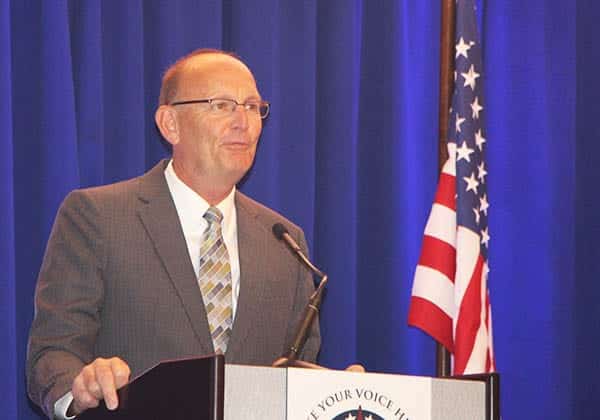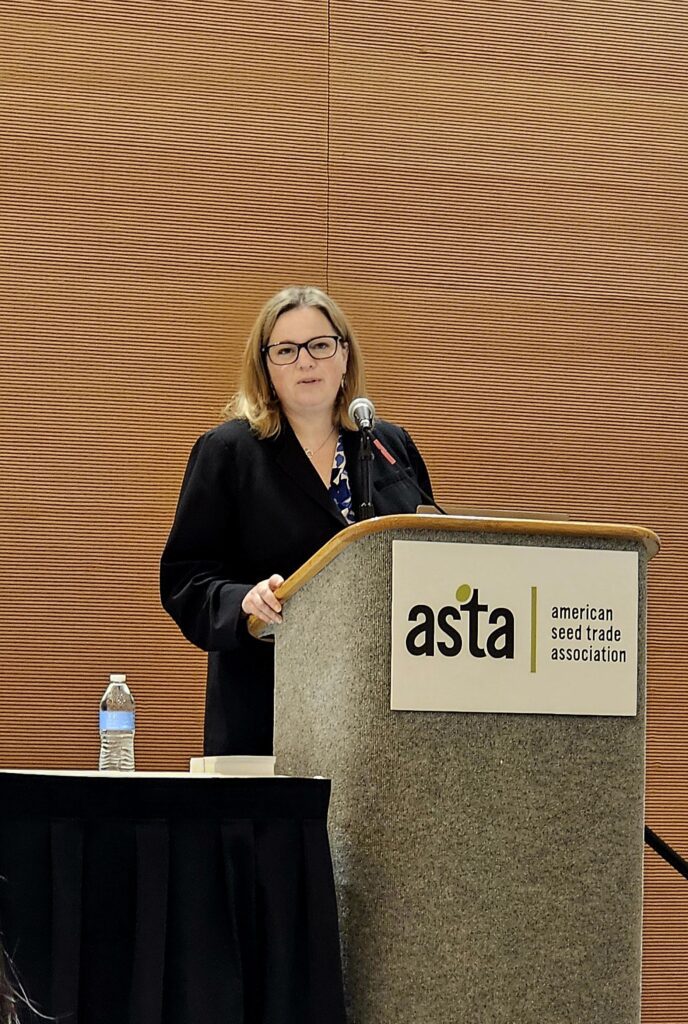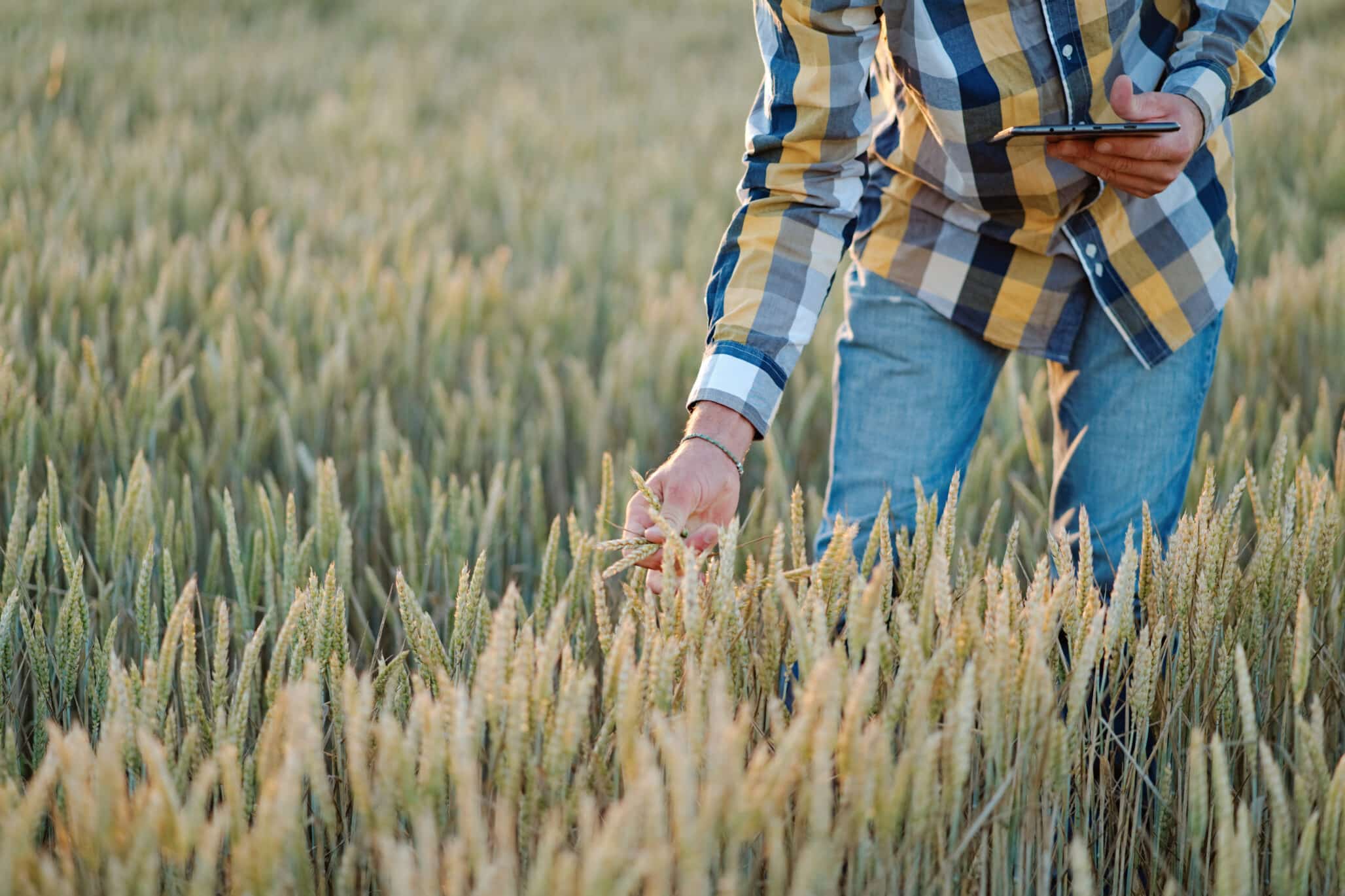“It’s important for me to remember that the decisions we make here in Washington really do impact individual farmers and ranchers in rural areas across our nation,” said the U.S. Department of Agriculture’s Under Secretary of Agriculture for Marketing and Regulatory Programs Gregory Ibach to a room full of seed industry representatives and students. “They also impact those businesses, associations and the entire agricultural network that allows them to get their products from the farm to consumers.”
Formerly the Nebraska Director of Agriculture from 2005 to 2017, Ibach was sworn in as Under Secretary for Marketing and Regulatory Programs Oct. 30. He spoke at the American Seed Trade Association’s Policy and Leadership Development Conference, held June 9-13 in Washington, D.C., and shared a bit about the culture within USDA and that all of the offices are encouraged to work together to solve problems and move agriculture forward.
A guiding principle within the department is to “do right, and feed everyone,” Ibach said. He explained that one of Secretary Sonny Perdue’s first tasks when he came to Washington was to develop an interagency taskforce that focused on how to reinvigorate rural America. After six months of work, 22 different agencies across the federal government came up with five calls to action:
- Improve the rural quality of life.
- Support a rural workforce.
- Develop a rural economy.
- Achieve e-connectivity.
- Harness technological innovation.
Of those five calls to actions, it’s the last one that is top of mind for those in the seed industry. Under Secretary Ibach said one of the biggest ways they are working to harness technological innovation is through the revision of the biotechnology regulations.
Last fall, he explained that Secretary Perdue called back Part 340 of the regulations that were working their way through the system.
“A lot of people and associations had kind of settled on what was out there, [thinking it] was a good deal, and they were kind of happy with the direction it was going,” Ibach said. “But the secretary thought we could go further and that we could make even broader changes to those regulations to impact the future of agriculture even more.”
Since then, Ibach and his team have worked with ASTA, as well as many other organizations, to get their vision and understand their “wish list” for plant biotechnology regulation.
This spring Secretary Perdue came out with a preview of his vision for Part 340 of where these regulations might be headed, especially with regard to gene editing.
Ibach said that Secretary Perdue indicated that USDA would not regulate things that included plant varieties with deletions, single base pair substitutions, insertions from compatible plant relatives and complete male segregants.
“All-in-all, we want to be able to develop a new framework that not only adapts to gene editing in plants but is the beginning of that vision for the future,” he said, adding that it’s hard to know what the future might look like 30 years from now.
Ibach said their goal is to provide vision for the future and openness for technology of the future.
“We want it to be able to adapt to that future innovation,” he said. “We want it to be able to provide multiple off ramps for regulatory relief.
“That means if we’ve made a decision on a technology, that we don’t need to make it over and over again every time a technology presents itself in a different product. We want to make sure that your government isn’t wasting time reviewing the same product.
“We want to provide the documentation to developers and farmers for international trade that helps ensure the safe passage of U.S. products into the international marketplace. What we’ve seen over the past 20 years or more is that America has been quick to come out with technologies and opportunities for agriculture. The rest of the world has been slow to adapt or accept those. We still have resistance in many markets, and China still lags behind in accepting 10 different technology traits that we want them to address … And we want to be sure that we don’t create a new system that creates more problems in international trade.”
With this vision in hand, Under Secretary Ibach has been working in with 19 other countries to discuss their coordination of how best to handle new plant breeding innovations.
“It was really exciting because a lot of those nations are really even ahead of the U.S., so it challenged us to get our act together,” he said. “The vision of where we want to go here at USDA with plant biotechnology, and where almost all 19 of those nations want to go, is fairly uniform. If we can get the Western Hemisphere, where much of the food is grown, on the same song sheet, hopefully the rest of the world will take note and want to follow along.”
Under Secretary Ibach said those in USDA will continue to promote a world vision and will work to advance the leadership of the U.S. in this area.












